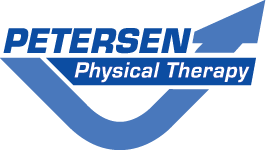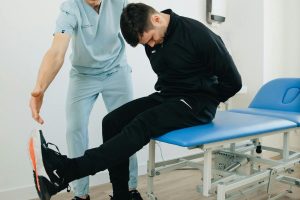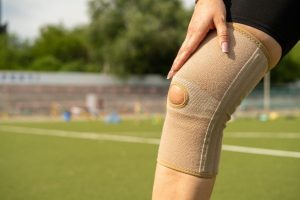When discussing a patient’s physical therapy plan, it’s common to become focused on the exercises, stretches, and routines associated with the plan. However, what’s equally important to making physical therapy work is to think about the rest days between sessions, as these are the days that actually lead to the improvement we’re after.
Physical therapy rest days play a significant role in promoting muscle recovery, minimizing the risk of overuse injuries, and maintaining mental well-being, ultimately contributing to a more effective and sustainable rehabilitation process.
Properly resting after physical therapy sessions is an often overlooked element of recovering from injuries or musculoskeletal issues. In this article, we’ll discuss why rest days are important, and the importance of getting good sleep during the recover process.
The purpose of rest days in physical therapy
Should you take a rest day between physical therapy appointments? Though scheduling issues vary from person to person, we believe that it’s a good idea. For more information on how rest days work within the system, see our full article on how often we should be doing physical therapy.
Physical therapy rest days are not just a break from your routine; they serve a fundamental purpose in the rehabilitation process. There’s a colloquialism in the exercise science world: “you don’t get stronger by lifting weights, you get stronger by recovering from lifting weights.”
The same thing applies to physical therapy, where we’re putting deliberate, controlled stress onto the muscles and connective tissues in order to promote the strengthening of the tissue and the mobility of the joints. For this reason, doing physical therapy every day rarely makes sense.
Let’s discuss some of the reasons we advocate for our patients to take a day between appointments, as well as get good sleep during their physical therapy process:
Muscle recovery
During exercise and therapy, your muscles experience micro tears and fatigue. The physical therapy exercises your therapist prescribes are designed to challenge the muscle tissues. Rest days allow these muscles to recover, repair, and grow stronger.
We are often challenging your range of motion, or gently encouraging improvements to specific motor patterns. It’s important to rest and recover after doing so, and this will go a long way towards avoiding any side effects or pain after physical therapy.
Without adequate rest, your muscles won’t have a chance to recover in time for the next session, which can lead to sub-par results.
Injury Prevention
Overuse of injured or weakened areas can lead to further damage. This can prevent injury or re-injury during the therapeutic process.
Rest days give your body a chance to heal, reducing the risk of exacerbating existing injuries or developing new ones.
Mental Well-being
Physical therapy can be challenging, both physically and mentally. Rest days offer a mental break, reducing stress and fatigue, which can positively impact your motivation and enthusiasm for the therapy process.
What to do on your physical therapy rest days
Though your physical therapist is guiding your treatment, you know your body best. Here are a couple of guidelines to follow on your days off:
- Listen to your body
- Take active rest
- Complete your home exercise program as prescribed
Paying attention to how your body feels will pay dividends. Recovery from physical injuries or musculoskeletal issues is a process that doesn’t take place overnight, and it’s normal to have ups and downs.
If you’re experiencing excessive soreness or fatigue, take it easy and allow yourself to recover for the next session. Remember that the progress is being made on the days when you’re resting.
That being said, we advise that you take an active rest, if at all possible. Note that “rest” doesn’t necessarily mean lying in bed all day. Light activities like walking, gentle stretching, or yoga can help maintain flexibility and prevent stiffness.
Additionally, we advise you to continue to perform your home exercise program as prescribed by your therapist, unless you’re experiencing increased pain from doing so.
In designing your home exercise program, your therapist has taken into account the amount of workload your body will likely be able to tolerate and recover from. Remember that completing your home exercise program is an integral part of your recovery.
For a more in-depth discussion on this topic, see our full article on what to do after physical therapy sessions.
The benefits of taking rest into account during a bout of physical therapy
By giving your body time to recover, you’ll find that you perform better during your physical therapy sessions, leading to more effective progress. This can even positively affect how long it takes your physical therapy to work.
You will also avoid overloading your muscles, joints, and connective tissue too much by repeatedly working them day after day in your therapy sessions.
From a subjective perspective, most patients also report that they benefit their mental state, and sometimes patients who were considering quitting physical therapy report that taking rest into account was the difference that allowed them to continue. Rest days allow you to recover in time for your next session, meaning that patients don’t dread the next session, or view it as a chore.
With proper recovery management, patients report that they actually look forward to the next session, because they are mentally and physically ready.
Physical therapy doesn’t just happen at the clinic!
It’s important not to overlook the importance of rest and recovery in the physical therapy journey. It’s also one of the factors we consider when a patient feels that physical therapy isn’t working for them.
In addition to the benefits you’ll receive during your weeks of physical therapy, you’ll develop a practice you can carry forward into the rest of your life, long after you finish your physical therapy.
Each physical therapy bout ends with a more long-term plan to continue moving forward and avoid reinjury in the future. By scheduling your sessions properly, you’ll have a better chance of remaining healthy and strong for years to come!

















